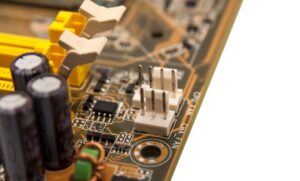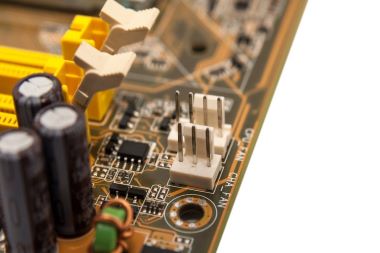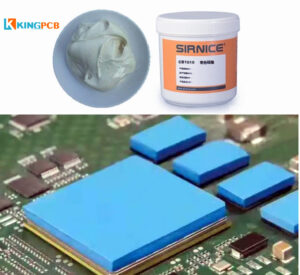
With the miniaturization and intensification of electronic products, how to effectively dissipate heat has become a matter that PCB manufacturers need to face.
Thermal Analysis
Effective thermal management requires a detailed thermal analysis.
Thermal analysis assists designers in determining the electrical performance and reliability of components on the PCB, helping to determine whether components or PCBs will fail or burn out due to over-temperature function.
A simple thermal analysis simply calculates the average temperature of the PCB, while a complex one models the transients of electronic devices containing multiple PCBs and thousands of components.
PCB thermal management design practices
There are several thermal methods that can be used when designing and prototyping PCBs.
- Heat sinks
- Cooling fans
- Use thermal pads or thermal paste
- Solid filled vias
- PCB materials with good heat dissipation
To ensure a good connection between the IC and the heat sink, thermal pads and thermal paste are often used.
What are thermal pads and paste?
Thermal pad
Thermally conductive pads are made of thermally conductive materials that are inherently sticky, soft, good compression properties, and excellent thermal conductivity. They help to dissipate heat easily when placed between the component and the heat sink.
What are the advantages of thermally conductive pads?
- Easy deployment
- Flexibility to cut to any size
- Multiple material options
Thermal Paste
Essentially, thermal paste performs the same function as a thermal pad. The thermal paste works by closing any air gap between the heat generating component and the heat sink. This ensures that the air gap does not act as a thermal insulator and that heat is easily dissipated.
What are the advantages of thermal conductive paste?
- Price advantage
- Easy to apply, fills uneven gaps and provides a thinner interface, thus providing better thermal conductivity
- Durable and more robust
Choose thermal pad or thermal paste? Which works better
The truth is that no one choice is absolutely perfect. Each material has its advantages and disadvantages, and the choice depends on the application requirements of the product. All we need to do is to carefully evaluate the thermal requirements of the board and then choose the most suitable material.
In addition to using thermal pads or thermal paste, you also need to use appropriate through-hole and surface mount pads, alignment wiring, and power layers for your IC design. This will greatly help you to manage the thermal condition of the board.
Explore KingPCB’s manufacturing services
In essence, thermal management is a technique used by PCB manufacturers.
KingPCB as one of the leading PCB manufacturers in China has over 10 years of experience. It is our goal to adhere to strict high standards of PCB manufacturing and assembly.
To get a fast PCB manufacturing quote, contact us now!





